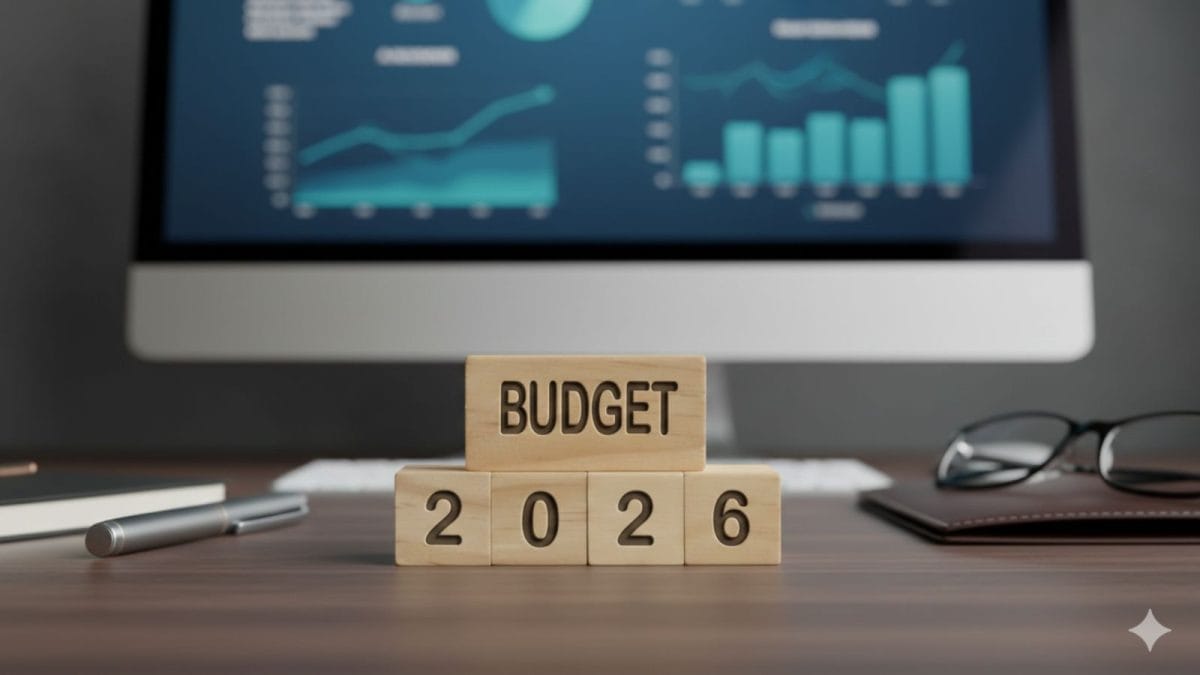Politics
Modi calls Trump tariffs ‘unjustified’, unveils tax cut incentives
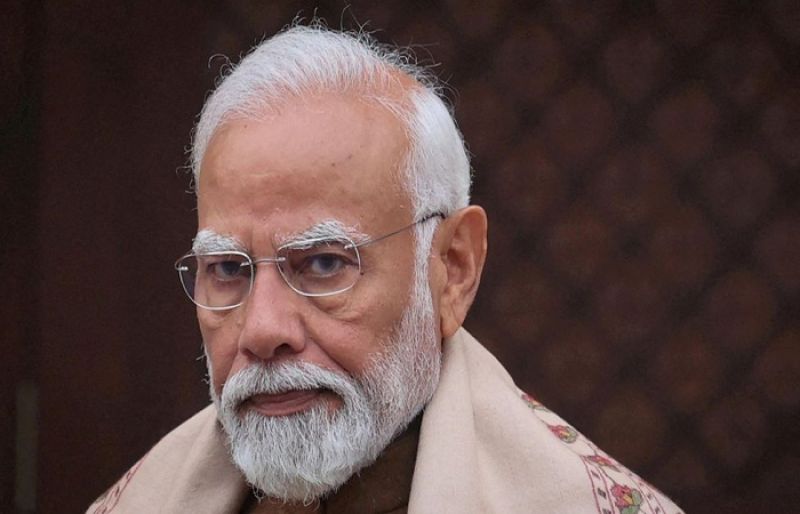

Indian Prime Minister Narendra Modi’s plan to reduce consumption taxes on everyday goods could provide billions of dollars in annual relief and stimulate demand in an economy preparing for potential US tariffs, experts say.
US President Donald Trump has warned he may double import duties on India from 25% to 50% in response to New Delhi’s purchase of Russian oil, arguing such transactions help Moscow finance its war in Ukraine.
The threat has cast uncertainty over the outlook for the world’s fifth-largest economy, with Indian exporters cautioning about declining orders and significant job losses.
Calling Washington’s move “unfair, unjustified and unreasonable,” New Delhi is working to cushion the impact.
Modi, during his recent Independence Day address, pledged to “reduce the tax burden on the common man.”
The proposed cuts to the goods and services tax (GST) would make items ranging from small cars to air conditioners more affordable for consumers, according to economists.
Currently, the GST functions under a four-tier structure, with rates spanning from five to 28%. Under Modi’s plan, most goods would be simplified into just two categories, taxed at either five or 18%.
The Indian leader has called the change a “Diwali gift”, a reference to the annual Hindu festival of lights when consumers splurge on everything from gold and clothes to consumer electronics.
‘Sizeable savings’
Trump’s tariffs — and their impact on ordinary Indians will hinge on how much progress is made towards a Russia-Ukraine peace deal, and whether New Delhi can secure alternative oil suppliers before the US president’s August 27 deadline.
But experts say Modi’s tax reform could help shore up demand by reducing tax collections by between $13 billion and $17 billion.
Analysts at Emkay Global Financial Services called the policy a “welcome reform towards boosting domestic consumption”.
They estimated that about the vast majority of items currently subject to the top 28% rate would be taxed at 18%, while “nearly all” in the 12% tier would move into the 5% bracket.
Analysts at Motilal Oswal, an Indian financial services firm, said the changes would bring benefits to a wide range of sectors and “sizeable savings” to households.
The fate of the proposal ultimately rests with the GST Council, which includes representatives from state governments and has struggled to achieve broad consensus in the past.
If approved, the cuts would strain public finances, according to experts.
However, they said, they could also help to offset tariff risks and burnish Modi’s credentials among the middle class.
The proposal comes ahead of expected elections later this year in Bihar, a large, Hindu-majority state of 130 million people that is a key political battleground for Modi.
“The popular economic narrative right now is that of Trump’s 50% tariffs and how the US-India relationship is seeing setbacks,” Deepanshu Mohan, economist at OP Jindal Global University, told AFP.
“The GST readjustment is a strong response from Modi in that context. It’s Modi telling the middle class: ‘We are trying to make sure you have enough at your end,'” Mohan said.
But, he added, it was also an acknowledgement that India’s economy had not worked for its “low middle-income class for some time”.
US-India Trade Tensions
Although economists have long urged an overhaul of the GST framework, Modi’s unexpected announcement comes at a time when US-India relations have sunk to a multi-decade low.
Experts warn that without a trade agreement, Trump’s proposed tariffs could push India’s GDP growth below 6% this fiscal year lower than the Reserve Bank of India’s projection of 6.5%.
India’s position on Russian oil imports will become clearer by late September, as most of this month’s shipments were contracted before Trump’s threats, according to trade intelligence firm Kpler.
Kpler analyst Sumit Ritolia told AFP that while Indian refiners are showing “growing interest” in US, West African, and Latin American crude, this reflects “greater flexibility, not a deliberate pivot.”
“Unless there is a clear policy shift or a sustained change in trade economics, Russian supplies will remain a central part of India’s crude basket,” Ritolia added.
Meanwhile, the outlook for US-India trade talks remains uncertain as the tariff deadline draws closer.
New Delhi insists it is committed to reaching a deal, but Indian media reports suggest Washington has postponed a planned late-August negotiating visit to New Delhi.
Politics
Former South Korean president yoon sentenced to five years in prison
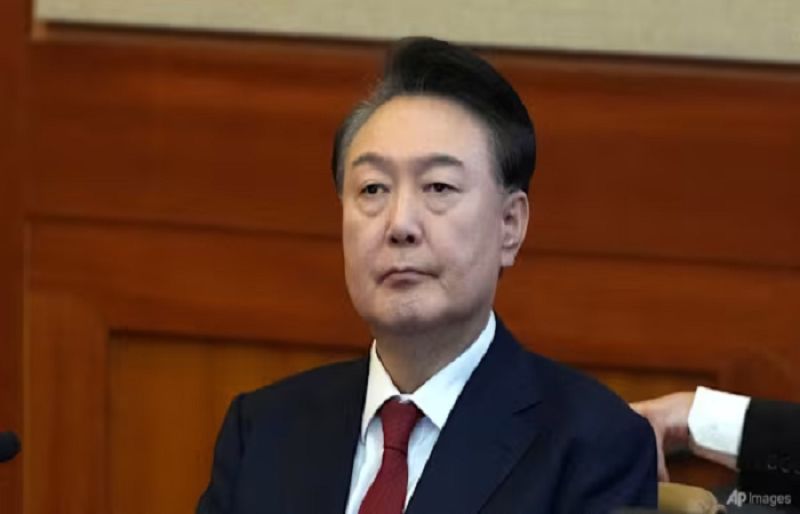

A South Korean court on Friday sentenced former President Yoon Suk Yeol to five years in prison on charges that included obstructing attempts by authorities to arrest him following his failed bid to impose martial law in December 2024.
The Seoul Central District Court found Yoon guilty of mobilising the presidential security service to block authorities from executing an arrest warrant that had been legally issued by a court to investigate him for his martial law declaration.
In televised proceedings, he was also found guilty of charges that included fabricating official documents and failing to comply with the legal process required for martial law.
The ruling is the first related to the criminal charges Yoon faces over his botched martial law declaration.
“The defendant abused his enormous influence as president to prevent the execution of legitimate warrants through officials from the Security Service, which effectively privatised officials … loyal to the Republic of Korea for personal safety and personal gain,” the lead judge on the three-justice panel said.
Speaking outside the court immediately after the decision, one of Yoon’s lawyers, Yoo Jung-hwa, said the former president would appeal the ruling. “We express regret that the decision was made in a politicised manner,” she said.
He could face the death sentence in a separate trial on a charge of masterminding an insurrection by declaring martial law without justification.
Yoon has argued it was within his powers as president to declare martial law and that the action was aimed at sounding the alarm over the obstruction of government by opposition parties.
Yoon, who also denied Friday’s charges, could have faced up to 10 years in jail over the obstruction charges related to when he barricaded himself inside his residential compound in January last year and ordered the security service to block investigators.
He was finally arrested in a second attempt involving more than 3,000 police officers. Yoon’s arrest was the first ever for a sitting president in South Korea.
Parliament, joined by some members of Yoon’s conservative party, voted within hours to overturn his surprise martial law decree and later impeached him, suspending his powers.
He was removed from office in April last year by the Constitutional Court, which ruled he violated the duties of his office.
While Yoon’s bid to impose martial law lasted only about six hours, it sent shockwaves through South Korea, which is Asia’s fourth-largest economy, a key US security ally, and long considered one of the world’s most resilient democracies.
Politics
South Korean ex-leader jailed for 5 years in first martial law verdict
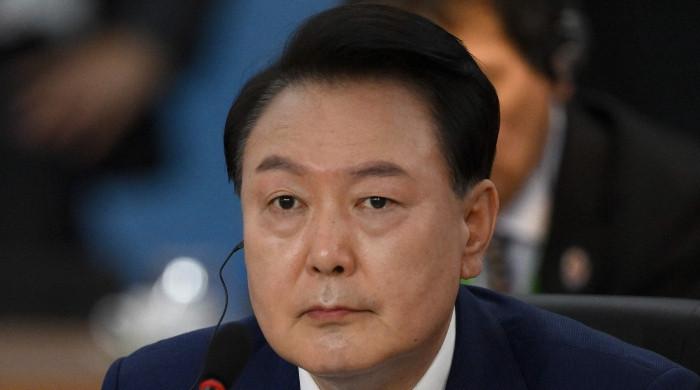
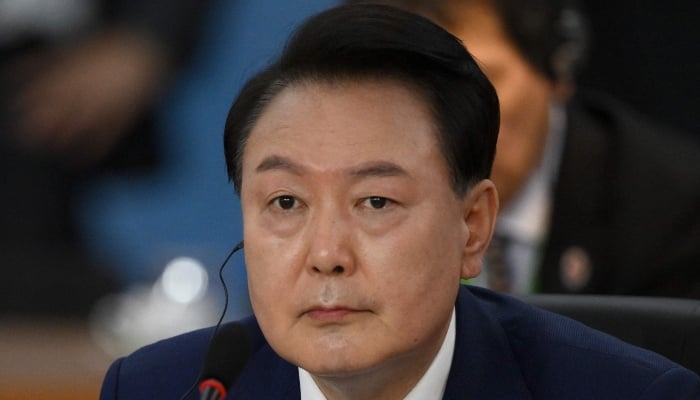
- Judge finds Yoon guilty of obstructing justice and other crimes.
- Separate insurrection verdict is scheduled for February 19.
- Yoon faces another trial over alleged drone flights to North Korea.
SEOUL: A South Korean judge sentenced former president Yoon Suk Yeol on Friday to five years in prison for obstructing justice and other crimes linked to his disastrous martial law declaration and in its chaotic aftermath.
It is the first in a series of verdicts for the disgraced ex-leader, whose brief suspension of civilian rule in South Korea on December 3, 2024 prompted massive protests and a showdown in parliament.
Now ousted from power, he faces multiple trials for actions taken during that debacle and in the turmoil that followed.
On Friday Judge Baek Dae-hyun at Seoul’s Central District Court said he found Yoon guilty of obstruction of justice by blocking investigators from detaining him.
Yoon was also found guilty of excluding cabinet members from a martial law planning meeting.
“Despite having a duty, above all others, to uphold the Constitution and observe the rule of law as president, the defendant instead displayed an attitude that disregarded the… Constitution,” Baek said.
“The defendant’s culpability is extremely grave,” he said.
But Yoon was not guilty of forging official documents due to lack of evidence, the judge said.
Yoon has seven days to appeal, he added.
Prosecutors had called for a 10-year prison term, while Yoon had insisted no law was broken.
Yoon defiant
It comes days after prosecutors in a separate case demanded Yoon be sentenced to death for his role as the “ringleader of an insurrection” in orchestrating the imposition of martial law.
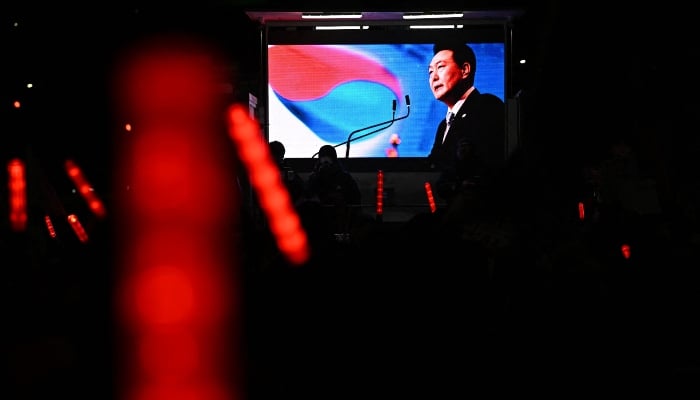
They argued Yoon deserved the severest possible punishment as he had shown “no remorse” for actions that threatened “constitutional order and democracy”.
If he is found guilty it is highly unlikely the sentence will actually be carried out, as South Korea has had an unofficial moratorium on executions since 1997.
Yoon was seen smiling in court as the prosecutors demanded the punishment.
And the former leader and top prosecutor has remained defiant, saying his martial law declaration was a lawful exercise of his presidential authority.
In closing remarks on Tuesday, he insisted the “exercise of a president’s constitutional emergency powers to protect the nation and uphold the constitutional order cannot be deemed an act of insurrection”.
He accused the then-opposition party of having imposed an “unconstitutional dictatorship” through their control of the legislature.
“There was no other option but to awaken the people, who are the sovereign.”
The court is scheduled to rule on the insurrection charges on February 19.
Yoon also faces a separate trial on charges of aiding the enemy, over allegations he ordered drone flights over North Korea to bolster his case for declaring martial law.
Politics
Trump accepts Nobel medal from Venezuelan opposition leader Machado
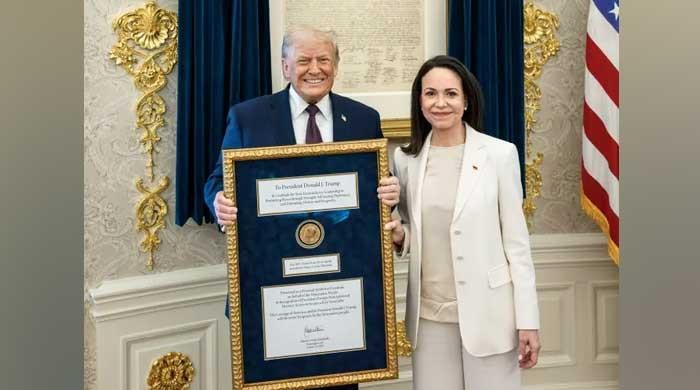
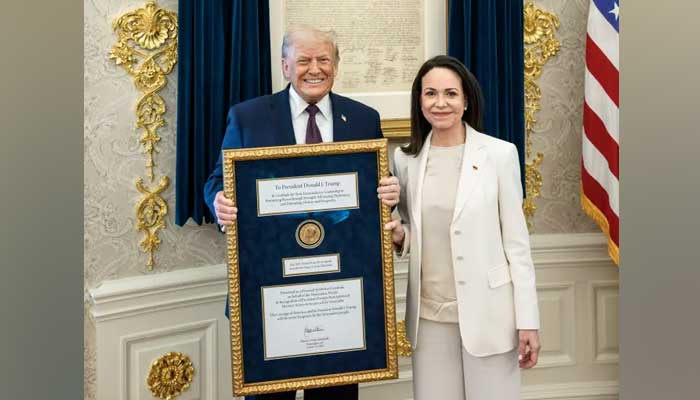
- Machado says meeting was ‘excellent,’ but did not elaborate.
- Encounter comes as Trump has praised Caracas’ interim leader.
- Trump has prioritised securing access to Venezuelan oil.
WASHINGTON: Venezuelan opposition leader Maria Corina Machado gave her Nobel Peace Prize medal to US President Donald Trump on Thursday during a White House meeting, as she tries to gain some influence over how the president shapes the South American country’s political future.
A White House official confirmed that Trump intends to keep the medal.
In a social media post on Thursday evening, Trump wrote: “Maria presented me with her Nobel Peace Prize for the work I have done. Such a wonderful gesture of mutual respect. Thank you Maria!”
Machado, who described the meeting as “excellent,” said the gift was in recognition of what she called his commitment to the freedom of the Venezuelan people.
Machado’s attempt to sway Trump came after he dismissed the idea of installing her as Venezuela’s leader to replace the deposed Nicolas Maduro. Trump openly campaigned for the prize before Machado was awarded it last month and complained bitterly when he was snubbed.
Though Machado gave Trump the gold medal that honorees receive with the prize, the honor remains hers; the Norwegian Nobel Institute has said the prize cannot be transferred, shared or revoked.
Asked on Wednesday if he wanted Machado to give him the prize, Trump told Reuters: “No, I didn’t say that. She won the Nobel Peace Prize.”
The Republican president long expressed interest in winning the prize and has at times linked it to diplomatic achievements.
The lunch meeting, which appeared to last slightly over an hour, marked the first time the two have met in person. Machado then met with more than a dozen senators, both Republican and Democratic, on Capitol Hill, where she has generally found more enthusiastic allies.
While the visit was ongoing, White House press secretary Karoline Leavitt said Trump had been looking forward to meeting Machado, but that he stood by his “realistic” assessment that she did not currently have the support needed to lead the country in the short term.
Machado, who fled Venezuela in a daring seaborne escape in December, is competing for Trump’s ear with members of Venezuela’s government and seeking to ensure she has a role in governing the nation going forward.
After the US captured Maduro in a snatch-and-grab operation this month, various opposition figures, members of Venezuela’s diaspora and politicians throughout the US and Latin America have expressed hope that Venezuela will begin the process of democratisation.
-

 Politics1 week ago
Politics1 week agoUK says provided assistance in US-led tanker seizure
-

 Entertainment1 week ago
Entertainment1 week agoDoes new US food pyramid put too much steak on your plate?
-

 Entertainment1 week ago
Entertainment1 week agoWhy did Nick Reiner’s lawyer Alan Jackson withdraw from case?
-

 Sports5 days ago
Sports5 days agoClock is ticking for Frank at Spurs, with dwindling evidence he deserves extra time
-

 Business1 week ago
Business1 week agoTrump moves to ban home purchases by institutional investors
-

 Sports1 week ago
Sports1 week agoPGA of America CEO steps down after one year to take care of mother and mother-in-law
-

 Tech3 days ago
Tech3 days agoNew Proposed Legislation Would Let Self-Driving Cars Operate in New York State
-

 Business1 week ago
Business1 week agoBulls dominate as KSE-100 breaks past 186,000 mark – SUCH TV




